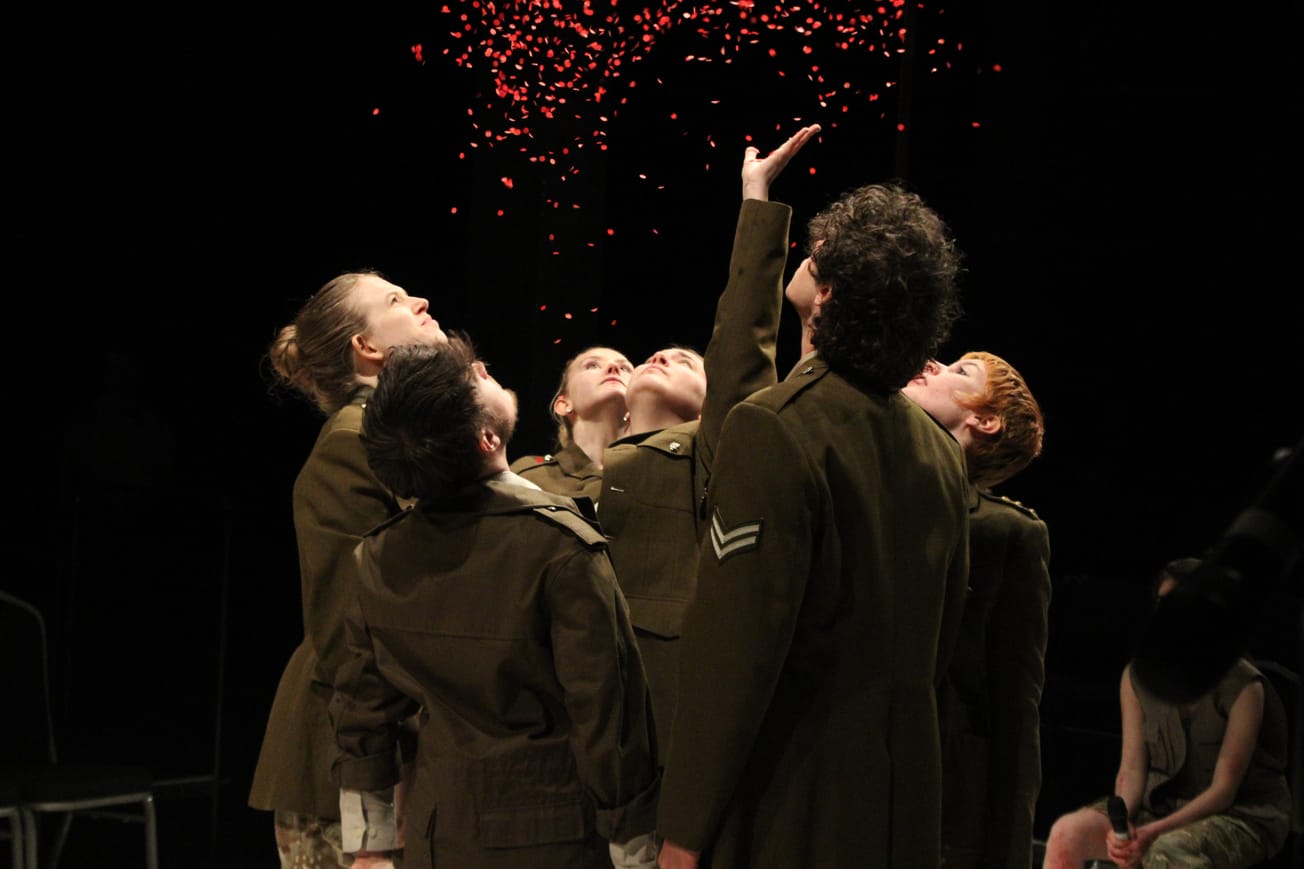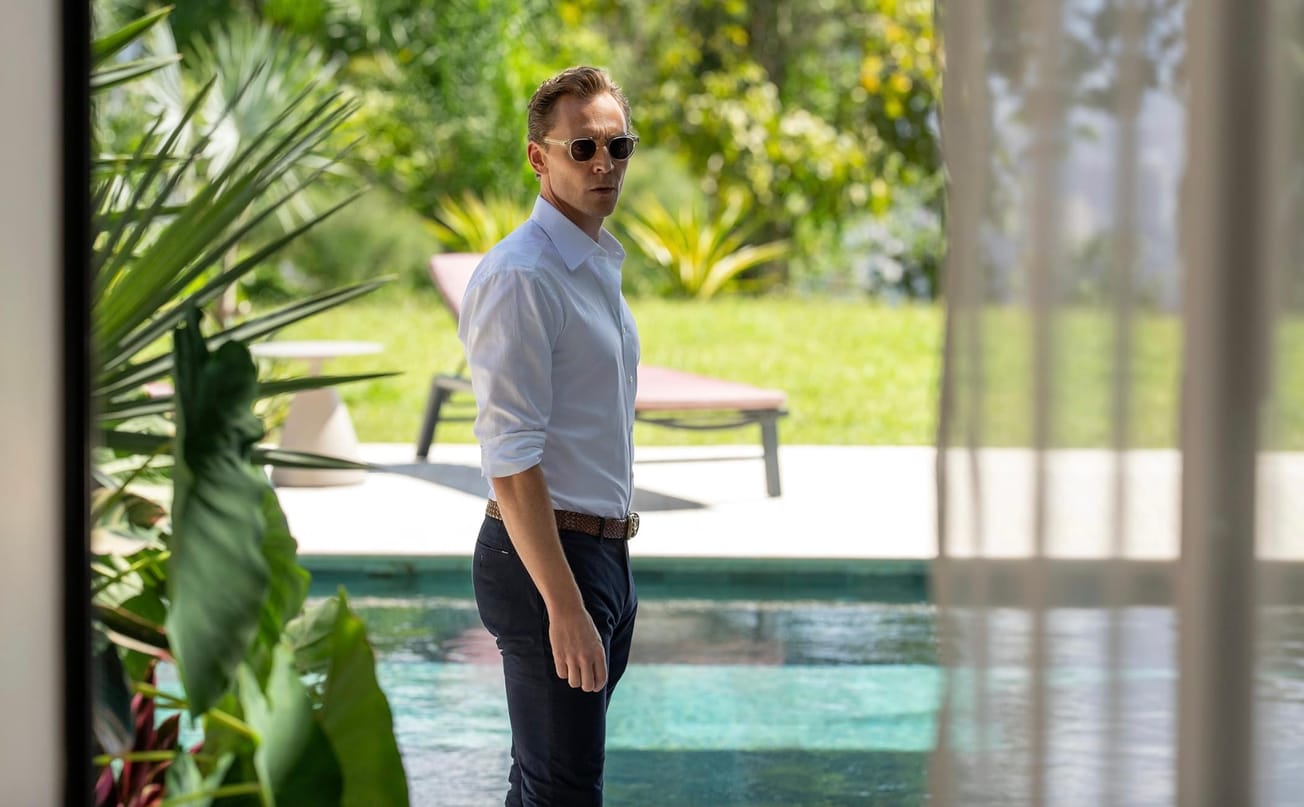By Felix Glanville, Second Year History
Toby Hocking and Rhona McRae bravely take on one of Shakespeare's most dramatic tragedies with great confidence, as their highly talented cast demonstrated the madness of a monarchical crisis, that turned into a fitting depiction of a fraught contemporary geopolitical landscape.
The play centres on an aged King Lear (Will Albu) who passes on the duty of the monarchy to his three daughters, Goneril (Lia Middleton), Regan (Holly Ford-Langstaff), and his youngest, Cordelia (Olivia Fay), not only Lear's favourite child, but one that the Dukes of the court wish to marry. Shakespeare plunges us into a classic tale of deception and banishment– with his most noble servant, Kent (Jed Trimnel), banished by Lear after his critical words of the rash leader. However, Kent returns in disguise, still with a desire to serve his master–which Trimnel executes brilliantly in the show. It is clear that he is constantly committed to Shakespeare's words, totally aware of what he is uttering– fresh and dynamic for the audience. He balances a deep-rooted vulnerability against a scheming agency, that grips the audience onto his side from the first beat.
The deception does not just end there. The Earl of Gloucester, played by a stand-out and frankly exceptional, Sam Garvin-Smith, is misled by his son, Edmund (Freya Randall) into thinking that his son Edgar, (Joe Wilson) is set on murdering his father for inheritance to his title. Edgar too, escapes the calamitous court and disguises himself as a mad beggar. Wilson provides the most vulnerable of all the play's performances, with a monstrous soliloquy and character transformation, as we see upfront how racked he has become at the hands of Lear's madness.
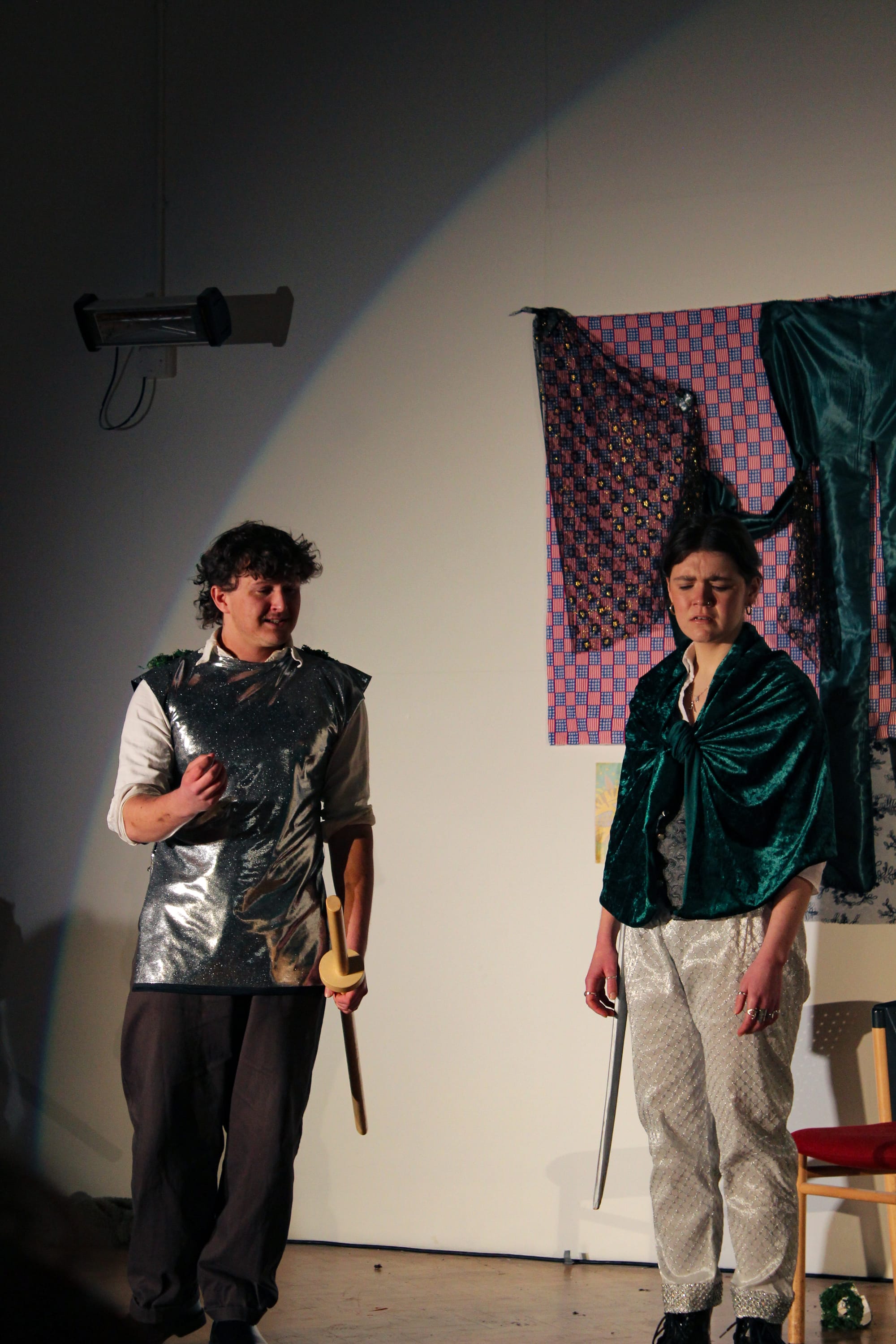
This culminates in dramatic fashion in the latter half of the second act, with Gloucester's eyes being gouged out, at the hands of a twisted pair– Cornwall (Cillian Britchfield) and Regan. This was truly a moment of impressive theatre, it felt unbelievably raw and real– not only was the makeup and effects itself outstanding, but Garvin-Smith's harrowing pain in this sequence was genuinely upsetting. An audience member opposite me was utterly reeled in their seat as the eye oozed out onto the floor; Hocking and McRae had us totally enwrapped.
With such a feat of doing Shakespeare's 3-hour play condensed down into a much more accessible student run-time, of course there were some moments that felt slightly rushed and ill-developed, particularly with all the army action at the end. However, fight choreographer, Ed Buckley, managed to create a brilliant fight sequence between Edmund and Edgar that leaves Edmund and Goneril to both die in tragedy. The fight with wooden quarterstaffs felt necessary, and leaned further into the classical gloss which the directing duo managed to thread throughout.
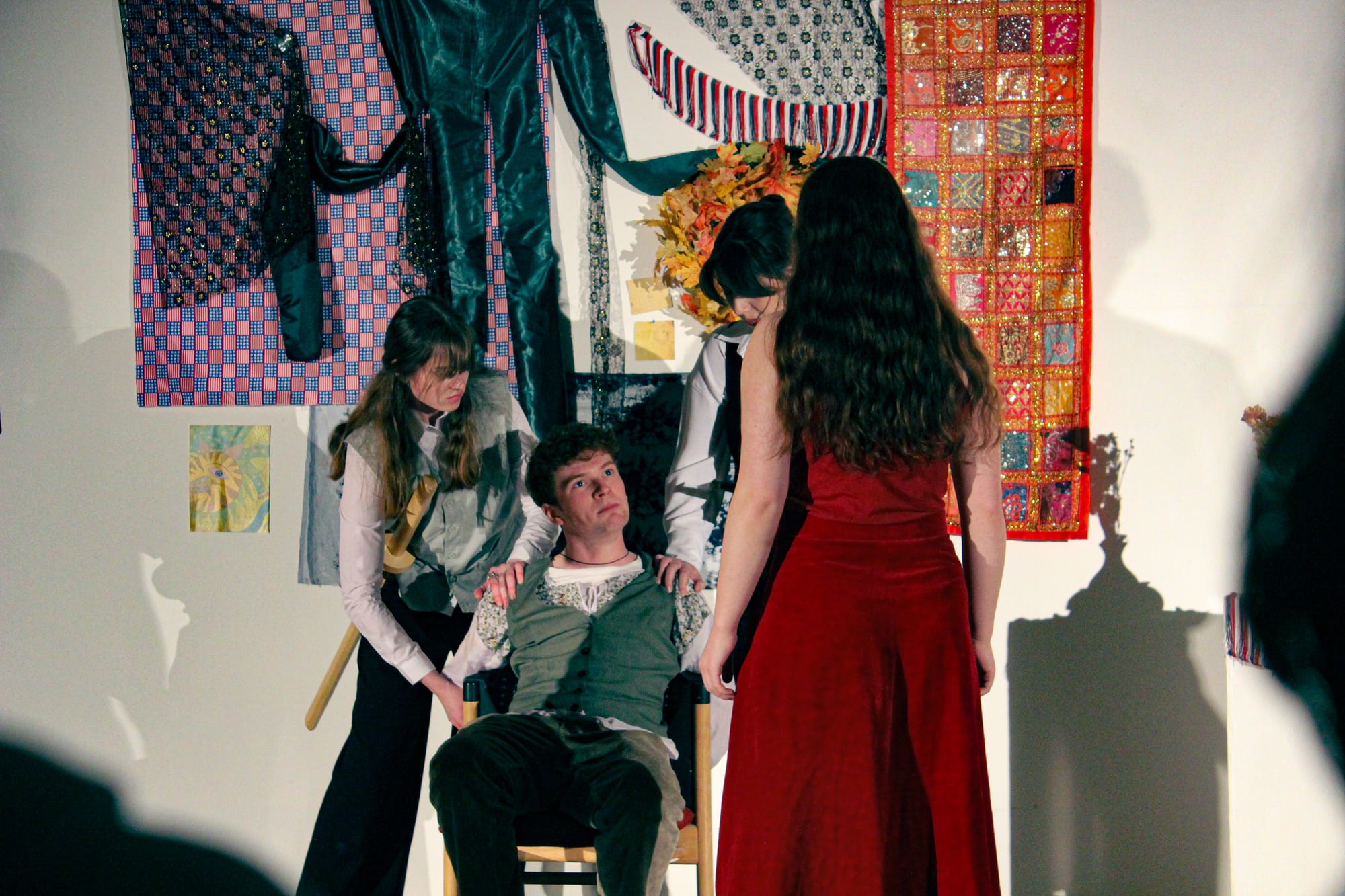
The play's ending was perfectly executed. Lear mourns the tragic death of his daughter, Cordelia, while learning that Gloucester and his strongest supporter, the Fool (Arthur Roberts), have also died. Will Albu as Lear demands all the praise for delivering a performance nothing short of exceptional. From the first line right until his painful last, he displayed an entire spectrum of emotion with an aged nature that never felt mocking or hyperbolised, but perfectly natural. He demanded attention from the room as he spoke with a blend of mellow softness and visceral anger, it was deeply encapsulating.
Due to the large cast on stage, actors that were emotionally committed even in reactions, were continuously engaging and effective. Both Lia Middleton and Mia Rowe were constantly gripped by the action, each playing totally opposite roles to Lear. Middleton was explosively reactive and snappy, always providing the burst of energy to a crippled court, while Rowe displayed a terrified stillness in the face of Albu. Sam Garvin-Smith too delivers a deeply captivating and moving performance as Gloucester, while Olivia Fay is hugely versatile, her change as Cordelia between the acts was seismic and necessary, brilliantly executed.
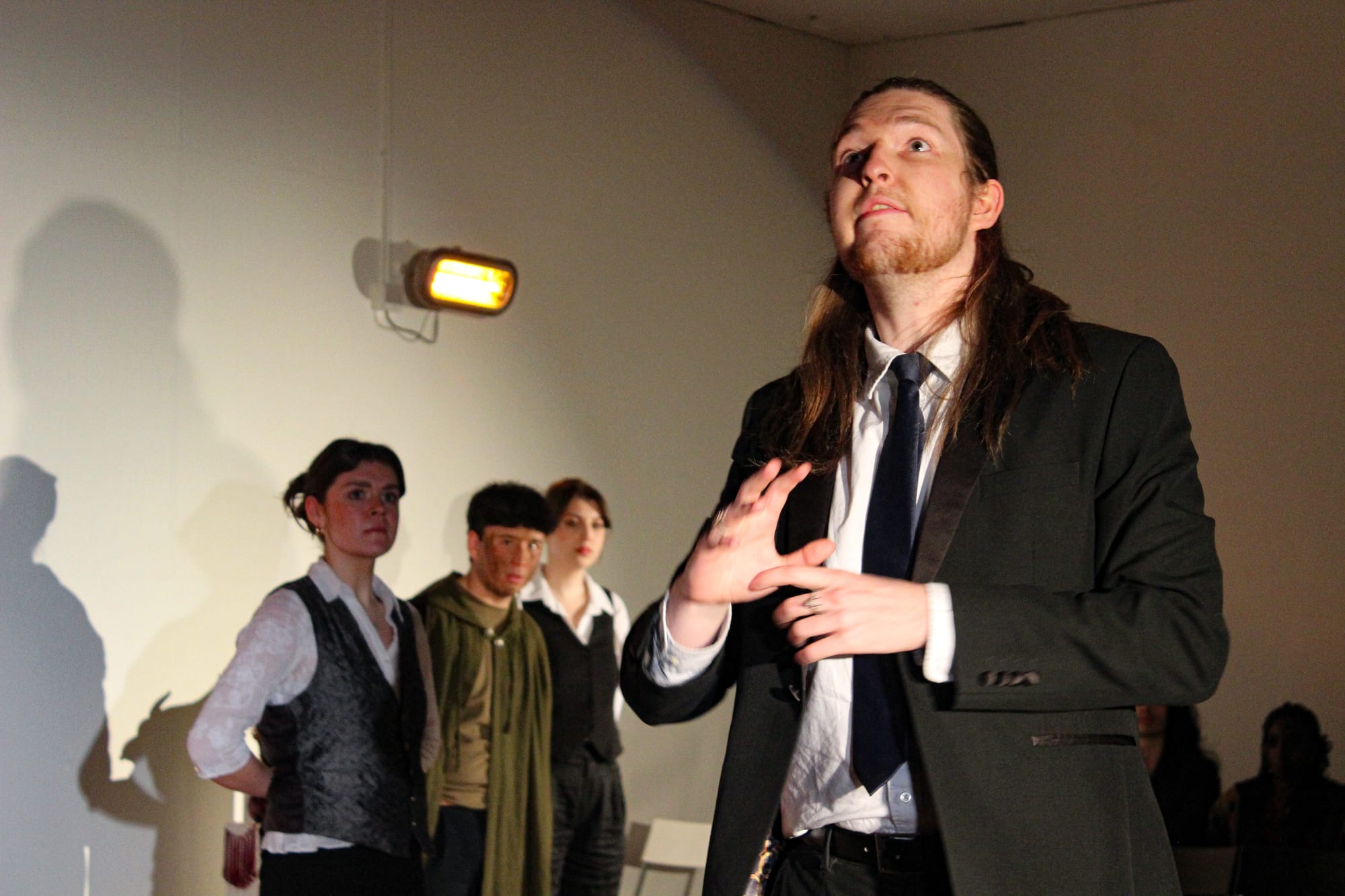
Performed in the Island, a gallery itself, this play brought early modern paintings to life in true Shakespearean verve. The set was simply ornate with a handful of colourful tapestries, harking back to a thriving monarchical era. It would also be absurd to not even mention the stellar array of costumes, from the mystic wraps of Trimnel to the sleek shades of Middleton and Ford-Langstaff, there is a traditional colouring of Shakespeare here, poignantly brought back to the present-day with Albu's political attire.
Notable mention to Robert's as the Fool dressed in outlandish colours and a dollop of joker-like makeup that enhanced his already lively performance, exuding an outlandish confidence that had the audience eager to follow his every move against a contrarily hardened and decayed King. There were moments that felt as if we were watching an interpretation of US political expression at its most extreme: a mad Trump with Lear in business dress, and a kind of twisted version of JD Vance, as the irrational Fool by his side.
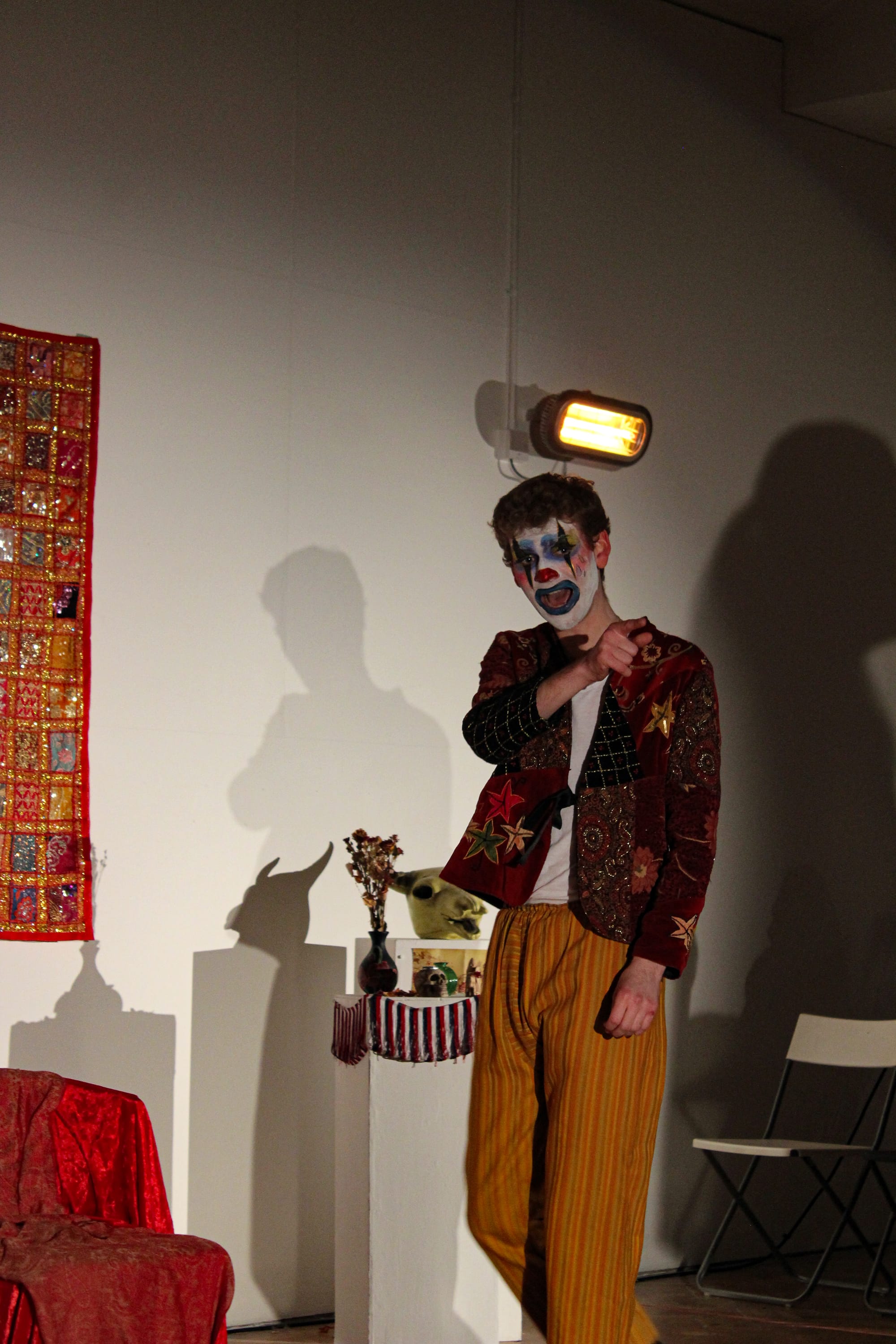
Every actor on stage brought a classical stillness that was fitting and effective, while having the dynamism to craft a real paranoia on stage, that found its real strength in the second act. Both Hocking and McRae deserve all the praise for managing to bring such a difficult tragedy to student theatre, and for having a cast that fully committed to bringing this corrupt world to life.
King Lear certainly confirms the upward success which the Bristol Shakespeare Society are heading towards, fit with an armoury of actors and creatives who tackle Shakespeare innovatively with both hands. As King Lear displayed, these students (particularly Middleton, Garvin-Smith, Roberts, and Trimnell) utter Shakespeare as if it were their mother tongue.
Photography by Neto Ken-Amobi, Instagram: @neto.amobi



